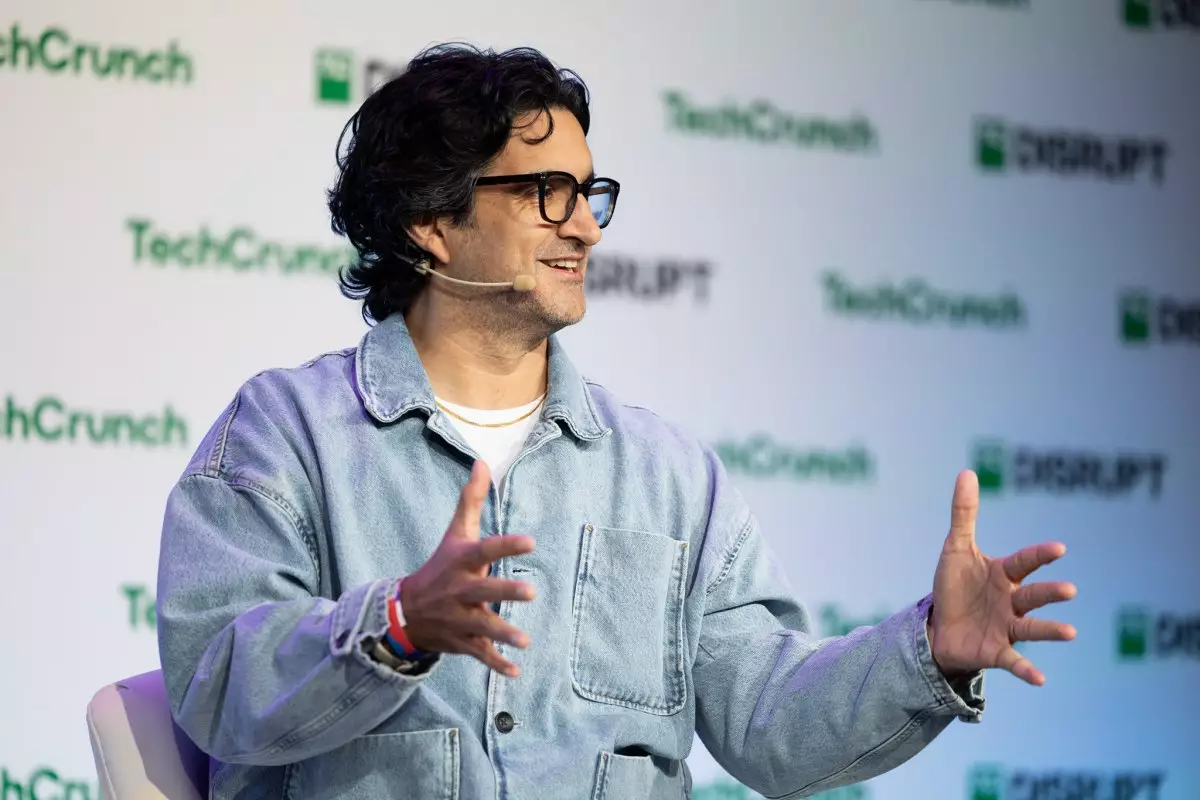Andy Dunn, the visionary behind the successful clothing brand Bonobos, has returned to the entrepreneurial arena with his latest venture, an innovative in-person social media platform named Pie. Yet, as he embarks on this new journey, the lessons he gained from his $310 million exit from Bonobos extend beyond merely the mechanics of entrepreneurship; they delve deeply into the profound challenges of maintaining mental wellness amid the high-stakes world of startups.
Dunn’s path has taken him through tumultuous waters, marked notably by his diagnosis of bipolar disorder during his college years. While initially struggling with his condition, it wasn’t until 2016—after experiencing a severe manic episode that required hospitalization—that he truly embraced the necessity of proper treatment. Shocking as it sounds, Dunn equates this manic phase to “psychosis,” where productivity is nearly impossible amidst grandiose delusions and heightened states of unrest. His candid reflections at the TechCrunch Disrupt 2024 event shed light on the often-unseen struggles of entrepreneurs battling mental health issues alongside the pressures of building successful companies.
In his new book, “Burn Rate: Launching a Startup and Losing My Mind,” Dunn intertwines his dual narratives of startup growth and personal struggle. He posits that the challenges he faced resonate beyond his diagnosis, as mental health is a universal concern for entrepreneurs, regardless of formal diagnoses. The notion that successful entrepreneurship often coexists with mental health struggles is not lost on Dunn, but rather it is emphasized throughout his discussions. He articulates the disturbing reality that entrepreneurs commonly report experiencing mental health challenges at disproportionately higher rates than the average population.
Dunn’s observations point to an intriguing correlation between neurodivergent individuals and innovation. He raises questions about whether entrepreneurship naturally attracts such individuals or if the environment itself fosters neurodivergent traits. This discourse grows richer as Dunn further explains that manic states—characterized by rapid ideation, increased energy, and a sense of invulnerability—can sometimes be mistaken for the qualities associated with effective entrepreneurial leadership. However, the flip side of this coin is a harsh reality: Dunn’s own experiences with debilitating depression and severe mania remind us that such highs always come with corresponding lows.
Accepting Vulnerability: A Key to Growth
Dunn’s journey has reshaped his perspective on leadership and collaboration. He acknowledges that even during his most productive hypomanic phases, his managerial style suffered. He recounts the irritable tendencies that beset him during disagreements with colleagues, which starkly contrasts with the essence of collaborative success. This insight has transformed his approach at Pie, emphasizing the importance of healthy debate and differing opinions in decision-making processes. Finding strength in vulnerability is pivotal for fostering an inclusive and innovative team culture.
Despite the increasing openness surrounding mental health discussions, Dunn candidly addresses the lingering stigma that many founders face. He advocates for transparency but advises caution when it comes to disclosure. For instance, he suggests waiting several weeks post-funding negotiations before revealing mental health challenges to potential investors, citing concerns that such disclosure could jeopardize funding opportunities. Yet, Dunn’s own trajectory—culminating in Pie’s successful $11.5 million Series A—challenges the notion that acknowledging mental health struggles must obstruct one’s professional aspirations. His experiences reflect a shift in the startup ecosystem towards greater acceptance and understanding.
Dunn’s struggles have instilled in him a profound awareness of the need for balance between pursuit of success and mental wellbeing. As he passionately articulates, the traditional 40-hour workweek often falls short in achieving revolutionary goals. In recruiting, Dunn lays out clear expectations regarding the demands of working at Pie, aiming to foster a culture rooted in growth and equitable participation. His pragmatic approach balances ambition with an emotionally supportive environment that recognizes the hazardous edges of burnout.
In “Burn Rate,” Dunn reflects on the missteps of an immature founder mentality, revealing a common misconception that more effort directly translates to greater success. The reality, he asserts, is far more complex; a stable and well-supported team can lead to better outcomes than relentless overwork. By fostering an understanding that self-care is not at odds with hard work but rather a foundational element, Dunn carves out a healthier narrative for future entrepreneurs.
Andy Dunn’s story is a compelling reminder that within the cacophony of entrepreneurial ambition, the importance of mental health must never be overlooked. Through honesty, resilience, and a commitment to fostering innovative environments, Dunn sets an example for aspiring founders aiming to navigate their own journeys with both creativity and care.

